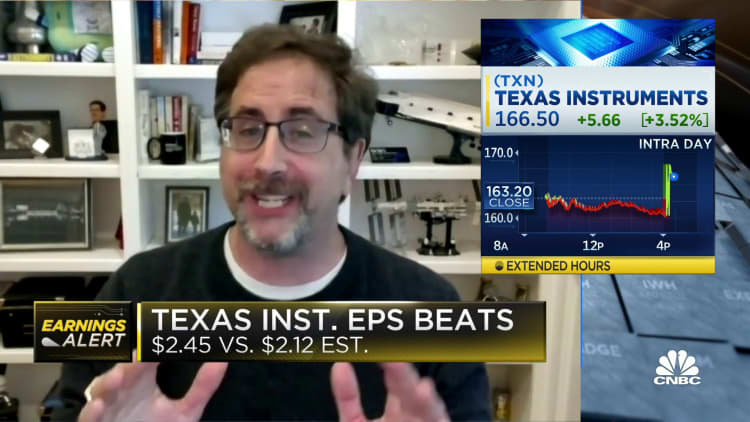[ad_1]
Richard Templeton, chairman, president and chief executive officer of Texas Instruments Inc., speaks during a House Science, Space and Technology Committee hearing in Washington, D.C., U.S., on Wednesday, Feb. 6, 2013. The hearing was titled “American Competitiveness: The Role of Research and Development.”
Andrew Harrer | Bloomberg | Getty Images
Texas Instruments on Thursday announced that its CEO for almost 19 years, Rich Templeton, will step down on April 1 as Haviv Ilan, its chief operating officer, replaces him. Templeton will remain the chipmaker’s executive chairman.Texas Instruments stock was flat in extended trading after the disclosure.
The 92-year-old company described the change as a “well-planned succession” in a statement. But Texas Instruments had carried out a similar plan in 2018 that backfired. The company said Templeton would step down to make room for its operating chief at the time, Brian Crutcher, in what it also called a “well-planned succession.” One month after the CEO change, it said Crutcher had left, and Templeton was reassuming the top role.
“Crutcher resigned due to violations of the company’s code of conduct,” Texas Instruments said at the time. “The violations are related to personal behavior that is not consistent with our ethics and core values, but not related to company strategy, operations or financial reporting.”
Under Templeton’s leadership, which began May 1, 2004, Texas Instruments stock has grown 581%, outperforming the VanEck Semiconductor exchange traded fund, which has risen 549% over the same period. Templeton took on the CEO job from Tom Engibous, who had held the post for nearly eight years.
Ilan arrived at Texas Instruments in 1999 by way of the company acquisition of the Israeli wireless startup Butterfly. Before becoming operating chief at Texas Instruments, he had been senior vice president of its analog signal chain and high-performance analog divisions.
Texas Instruments delivered $2.3 billion in net income on $5.24 billion in revenue for the quarter ended Sept. 30, representing about 18% earnings growth and 13% revenue growth. Most revenue stems from sales of analog products, including chips that change signals to data for other chips to crunch. Over one-third of revenue comes from industrial categories such as energy, health care and defense.
WATCH: Bernstein’s Stacy Rasgon says Texas Instruments overcame pandemic losses

[ad_2]
Source link
